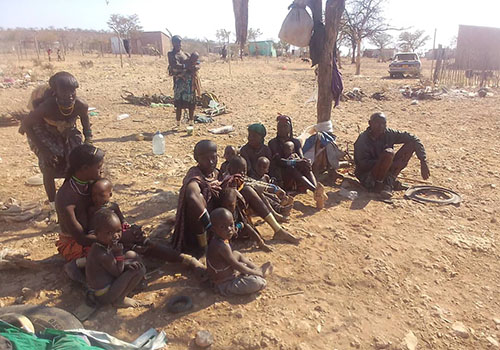Uakutura Kambaekua
OPUWO – The intermittent drought that has plagued the Kunene region over the past 10 years have had major repercussions for disadvantaged people in the Epupa constituency, leaving them totally reliant on the government’s special feeding programme.
According to Steve Tjiveze, senior administration officer at the Ministry of Gender Equality, Poverty Eradication and Social Welfare at Opuwo, a total of 1 115 households from marginalised communities rely on the government’s special feeding programme currently, a figure that is said to be increasing.
Tjiveze remarked in a recent interview with Nampa that these communities have already been suffering from poverty owing to a lack of work opportunities and inadequate educational opportunities, and the drought added to their difficulties.
“This figure continues to rise. Every time we go out in the field, we have to add at least 10 more households to the list,” he explained.
According to Tjiveze, the special feeding programme was established to offer food supplements to the San, Ovatue, and Ovatjimba populations in light of their socioeconomic and destitution levels.
“It was initially established as the San Feeding Programme during the start of the San Development Programme in the Prime Minister’s Office at the time,” he continued.
Tjiveze stated that despite the programme’s quarterly nature, it has proved beneficial in combatting hunger.
Each family receives a bag of maize meal, a can of beans, beef, cooking oil, minced meat, a can of fish, and a bag of sugar.
Tjiveze noted that the government will always strive to uphold its mandate of supporting the country’s less privileged groups, such as by promoting the rights of marginalised communities in accordance with international instruments relating to the rights of indigenous peoples/marginalised communities.
He said in addition to food supplements, the government provides funeral support to impoverished communities while also empowering them via income-generating projects such as gardening and other activities.
“The government is also offering education, transportation, and financial help to students,” he said.
-Nampa
(Epupa)



